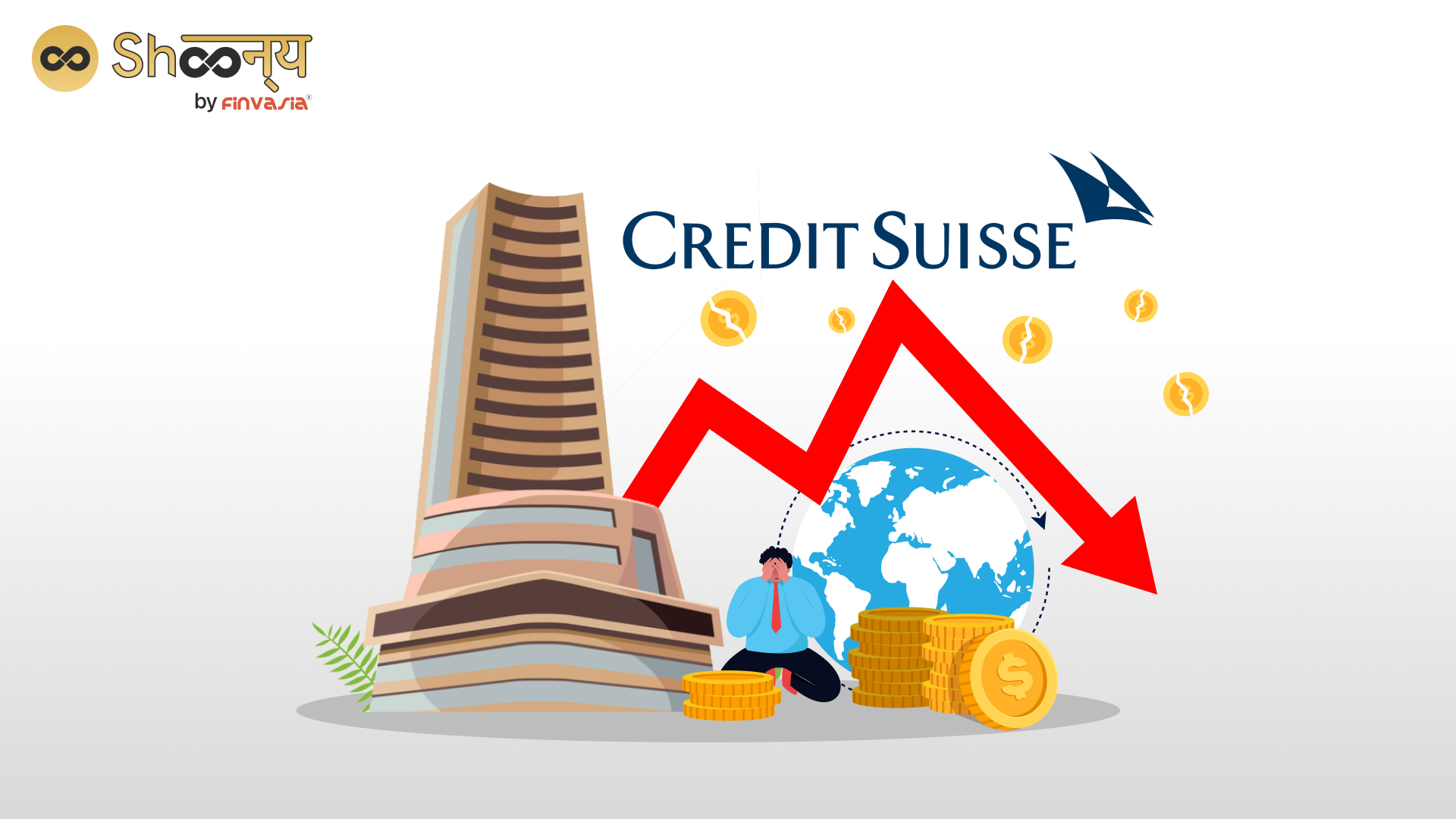The global financial landscape is in turmoil once again, as the collapse of Credit Suisse’s share price has sent shockwaves through global markets. The Swiss banking giant’s major shareholders have refused to inject any more money into the company, causing its share price to collapse by over 24% in just two days.
This crisis has triggered a wave of fear and uncertainty across the financial world, with investors scrambling to assess the potential fallout. The US stock market has been hit particularly hard, as fears of a wider banking crisis have caused the Dow Jones index to lose 0.87% and the S&P 500 index to fall by 0.70%. The tech-heavy Nasdaq index, however, managed to end 0.05% higher.
The impact of such a crisis is not just seen in the US market but in all the global markets like the Japanese Nikkei declining by 0.91%, while Shanghai’s index advanced by 0.60%, and the Hang Seng climbed by over 1.50%. Even India braced for impact; there was some relief as the SGX Nifty today opened lower but soon caught upside momentum and climbed to an intraday high of 17,144 levels.
However, the relief rally may be short-lived, as the Credit Suisse crisis threatens to spill over into the Indian economy. The collapse of the Swiss bank’s share price has sent shockwaves through the banking and financial sectors, which have been under pressure since the collapse of Silicon Valley Bank in the US. With negative sentiment growing around Credit Suisse, the negativity could last longer, posing a grave risk to India’s banking sector.
Impact on the Indian Economy
Except for Nifty FMCG and Nifty Pharma, all major sectoral indices were trading in the red. Nifty Metal fell over 3% as all constituents except Hindustan Zinc fell. Banking and financial stocks were also under pressure, continuing a trend that began with the collapse of Silicon Valley Bank. With Credit Suisse’s crisis adding to the chaos, the gloom may persist.
As India’s benchmark indices fall for the fifth session in a row, the country’s economy struggles to cope with weak global cues that are deteriorating amid the possibility of a global banking crisis. Foreign institutional investors continued to sell on Wednesday for the fifth consecutive session, putting additional pressure on domestic markets.
In the coming days, India’s fate will be determined by a number of key factors, including the US stock market, Asian stock markets, the US dollar to INR exchange rate, and the price of gold. These factors will have a significant impact on the country’s economy, and investors are advised to keep a close eye on them.
As the world waits to see how the Credit Suisse crisis will unfold, one thing is clear: the global financial landscape is once again in turmoil. Only time will tell whether India can weather the storm and emerge stronger from the crisis.
Source:
______________________________________________________________________________________
Disclaimer: Investments in the securities market are subject to market risks; read all the related documents carefully before investing.

